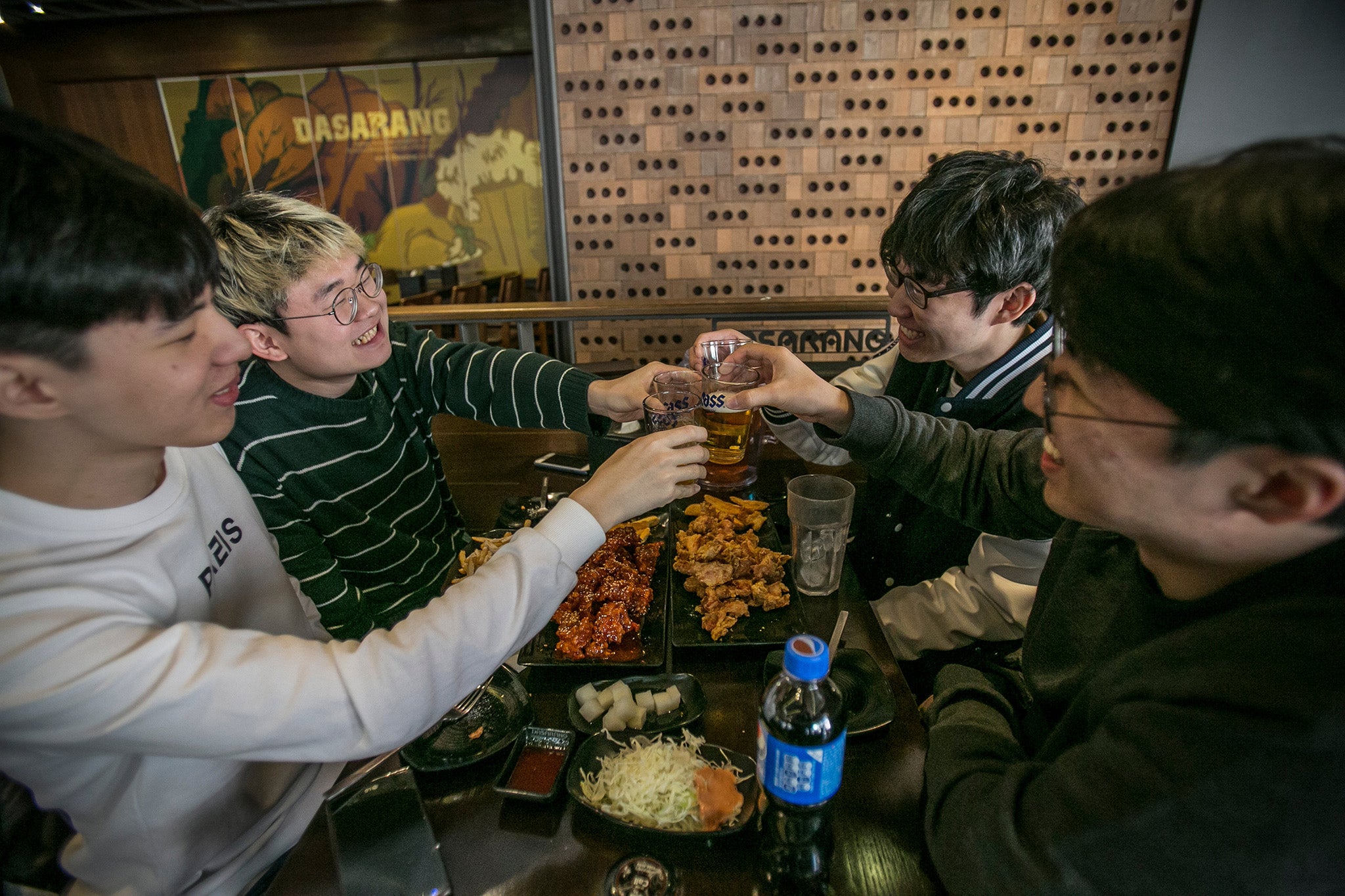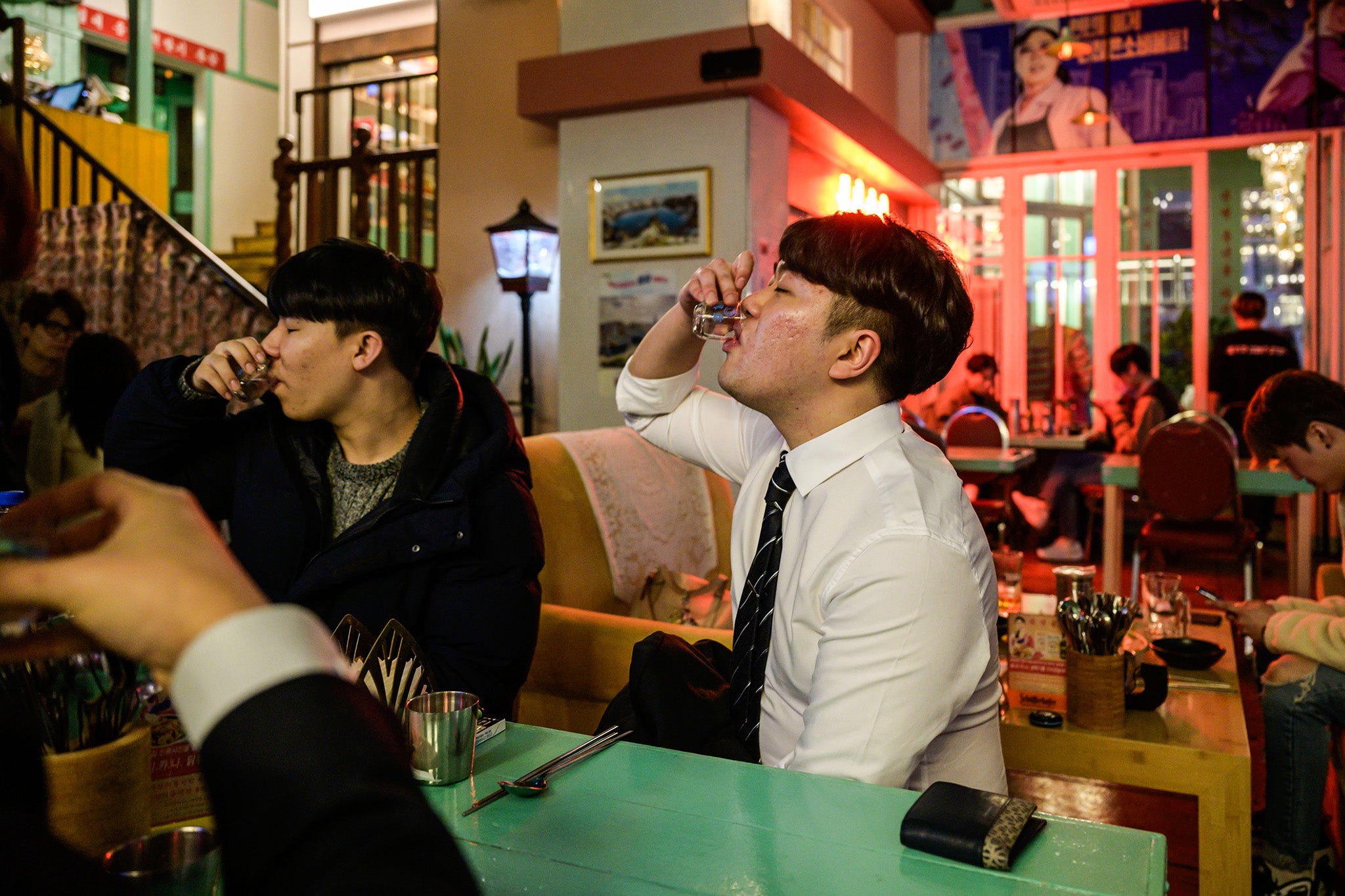South Korean health authorities had to debunk a social media post claiming alcohol consumption aids weight loss, warning that such misinformation risks undermining public health.
The Korea Health Promotion Development Institute (KHPI) on Friday released a statement after a social media post that misattributed a supposed weight‑loss benefit to moderate drinking, falsely citing Harvard University as its source, went viral.
The KHPI clarified that the study in question did not originate from Harvard but involved an analysis of how changes in drinking habits affected cholesterol levels among 57,000 Japanese adults, a report in Maeil Business stated.
While the study found that moderate drinking could raise levels of high-density lipoprotein (HDL), or “good” cholesterol, and lower levels of low-density lipoprotein, or “bad” cholesterol, it did not mention weight loss, and the researchers warned against drinking too much.
Instead the study aimed to show that claim suggesting that increased HDL levels lead to weight loss is scientifically tenuous.

Professor Lee Hae Jung, a professor of food and nutrition at Gachon University, explained to Maeil Business that alcohol is metabolised before other nutrients, which suppresses fat oxidation and encourages the body to store excess calories as fat.
The KHPI also urged content creators and social media users to follow their health information posting guidelines, which call for clear and accurate expression, avoidance of false or exaggerated claims, evidence-based information, and disclosure of sources, publication dates, and sponsorships.
Claims of this kind can be particularly concerning in South Korea, where drinking remains deeply embedded in social and professional life. Data from the Korea national health and nutrition examination survey for 2019-2020 showed that the drinking rate among adults aged 19 and above stood at 74.8 per cent, surpassing rates in the US (69.5 per cent), the EU (72 per cent), and the global average (43 per cent).
“There is no safe level of alcohol consumption. The false belief that drinking can help you lose weight could encourage excessive drinking, putting people’s health at risk,” KHPI president Kim Heon Joo told The Korea Times.
Trends in annual per-capita consumption have shown a positive long-term decline, according to Reuters. There was a 12 per cent downward trend in overall alcohol consumption between 2015 and 2024, a shift linked to changing corporate practices, health awareness, and legal reforms aimed at curbing forced drinking in workplace gatherings known as hoesik.

Drinking in South Korea, in addition to being a leisure activity, serves as a means of social bonding. Historically, evening rounds of drinks after work were part of widely accepted corporate and social rituals.
But cultural changes, including the 2007 court ruling against coerced drinking, the 2016 anti-graft law set limits on corporate entertainment, and the impacts of the Me‑Too movement, have all contributed to reduced pressure on employees to join similar events.
To counter excessive drinking, several companies like Samsung have promoted “119,” “829,” or “222” campaigns, encouraging limits such as one venue, finishing by 9 pm, and minimal alcohol mixing, to some degree of success, according to a Wall Street Journal report.
Despite the shift in culture, binge drinking remains a significant public health concern. Alcohol consumption in South Korea stood at 7.8 litres of pure alcohol per person in 2023, according to the Organisation for Economic Co-operation and Development, placing the country above the global average and among moderate-to-high consumers.
Additionally, the Korea national health and nutrition examination survey 2020 found that 51.9 per cent of men and 24.7 per cent of women reported binge drinking, defined as having seven or more drinks for men and five or more for women on a single occasion, at least once in the past month.





